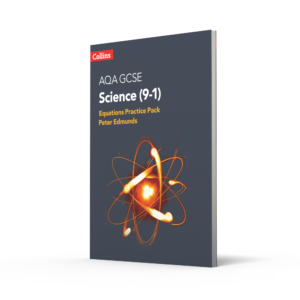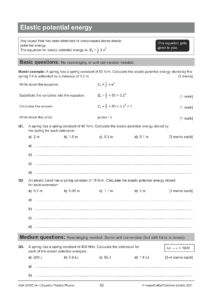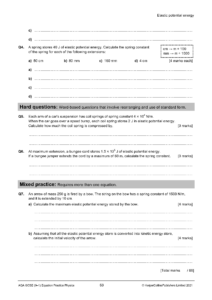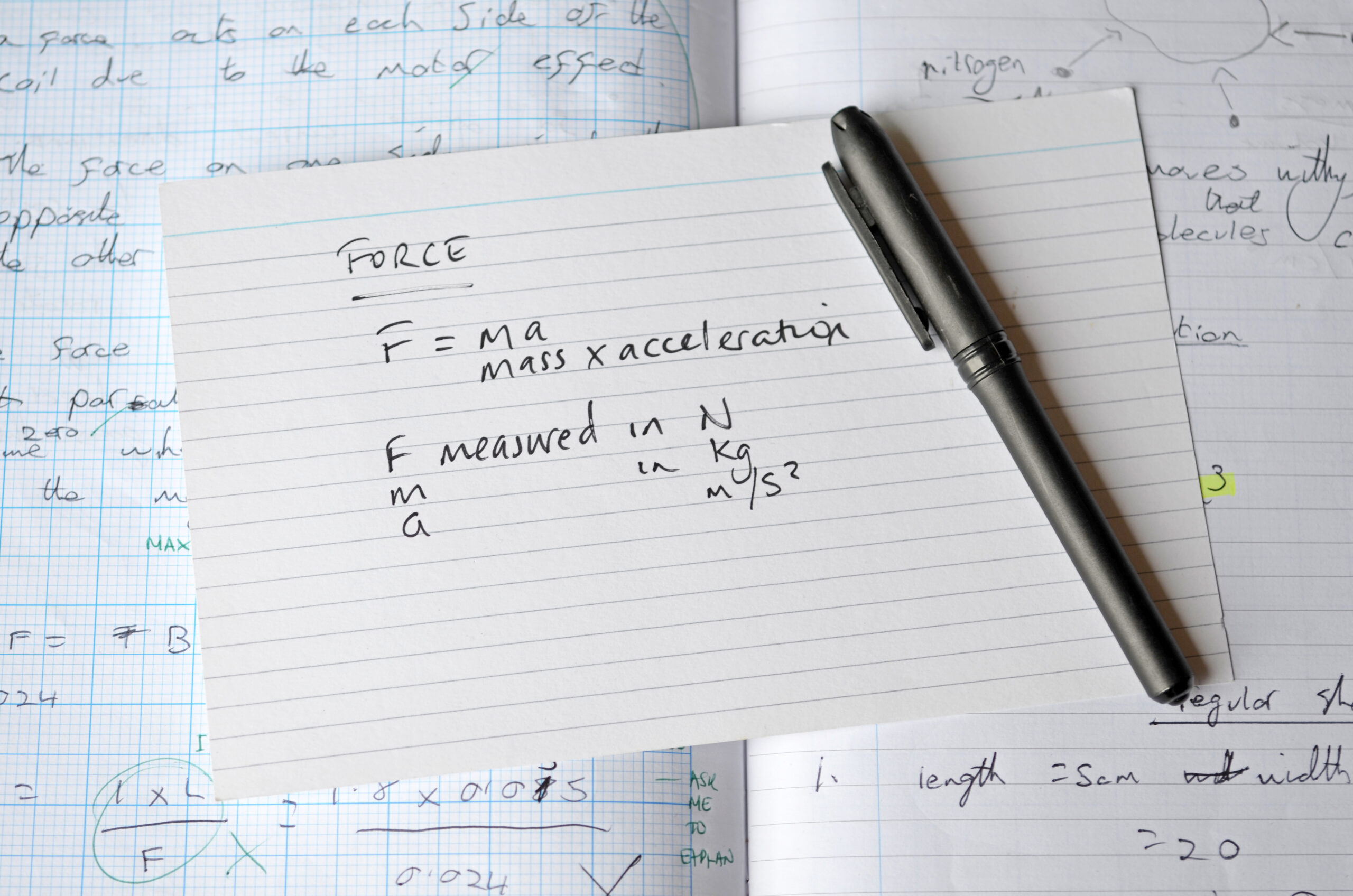By Peter Edmunds
When I was a trainee teacher back in 2017, I was frustrated by how much my students were struggling with calculations. Really frustrated. Calculations were the easy part of physics, I thought.
Of course, I now know that I was suffering from expert blindness. Just because I found calculations easy didn’t mean that my students did. It took a few months of reflection to figure out why students found calculations hard, and I now understand this in the following terms:
- Students lacked the necessary declarative knowledge. Or, in other words, they just did not remember the equations or the units.
- Students lacked the necessary conditional knowledge of knowing when to rearrange an equation (or when to do a unit conversion), and the procedural knowledge in knowing how to rearrange an equation (or when to do a unit conversion).
Knowing this, I set about making a set of resources that isolated each of these pieces of knowledge and got students to practise them individually. More recently, this has been formalised in my AQA GCSE Science (9-1) Equations Practice Pack, and I’ll detail the thought processes that I went through when making this. I think these thought processes translate if you’re looking at making your own teaching resources, too.
 AQA GCSE Science (9–1) Equations Practice Pack
AQA GCSE Science (9–1) Equations Practice Pack
- Differentiated practice for all science equations at Foundation and Higher level
- Fully editable, photocopiable and printable teacher pack
Isolating areas of practice
When writing student worksheets in this pack, I ramped the difficulty level throughout with ‘basic’, ‘medium’ and ‘hard’ levels of difficulty.


Not only does this have the effect of isolating each area of practice but dually differentiates the worksheets. Personally, I’m not a big fan of giving separate worksheets to different groups of students mid-lesson; I find this is difficult to manage as a teacher (and comes with high workload implications). In my opinion, this also sets arbitrary limits on what an individual student can achieve, which I don’t think is right. I strongly believe that all students can progress to complete more conceptually difficult questions. Instead, I prefer to have one sheet that ramps in difficulty throughout.
Broadly, I tried to keep the ‘basic’ questions straightforward with as few complications as possible. I see these questions as primarily to enable students to:
- practise recalling the equations and using them in the form given
- practise recalling the units.
Now, the vast majority of students should be able to access this level of question, especially if it’s been modelled extensively to them in how to answer these question types.
It’s important that students obtain a high success rate on these questions. Important for their confidence and important so that they’re not practising making mistakes.
To help this, worked examples feature in the student worksheets to help model how to answer those types of questions. If I was delivering as part of a lesson, I would also model several examples on the board, and circulate around the classroom live marking as I go (I’m a strong believer in feedback being most powerful in the moment).
Introduce additional complications
‘Medium’ questions slowly introduce some additional complications. Often students didn’t know why they were finding a question hard or why they were getting answers incorrect. Therefore I have highlighted what the additional difficulties are. If they need to rearrange I will feed this back and note if, for example, a unit conversion is needed. Hints are also in dashed boxes, which highlight (for example) the specific unit conversion needed.
I see these questions to enable students to:
- practise unit conversions with the conversion factors given to students
- practise rearranging with worked examples to help.
By initially scaffolding and highlighting the need to rearrange or do a unit conversion, we are keeping the level of success high. Again, we don’t want students practising making mistakes.
Moving beyond the scaffold
Of course, there must be a stage at which support is taken away. This is where the ‘hard’ questions come in.
With these questions anything is fair game, really. More than one complication is involved, with no hints. This is the stage at which the scaffolding is completely taken away. Students have seen the complications in a controlled way, and the hope is that this will translate into the hard section.
In my experience, students have been really proud to get hard questions correct. They also provide a level of ‘stretch’ that caters to even the highest attaining students (again, I prefer ‘differentiation’ to just be one ramped sheet). This ‘stretch’ carries on to the ‘mixed practice’ section where there’s (usually) a very challenging multi-step calculation that spans over more than one equation.
Equations success
By isolating one skill/area of knowledge at a time and ramping the difficulty, I’ve found much greater success with my students. Having a uniform approach to calculations across the science department has proved really useful, and by repeatedly isolating the same areas of knowledge, students have become very fluent with calculations. If you use the Equations Practice Pack, hopefully you’ll find this too!
Tag me on Twitter @edmunds_dr, and let me know how your students get on with equations questions.
Peter is the Head of Physics at a school in London. Formerly a physicist, he studied for a PhD & was a postdoctoral research associate at UCL, then latterly a postdoc at Imperial. He creates and shares physics resources on sciencedoctor.school.blog.
You might also be interested in:

How to run GCSE Science revision sessions
This is a brief blog on how to run revision sessions for GCSE Science. Forgive me, but I’m going to start by being a bit contrary… read more



